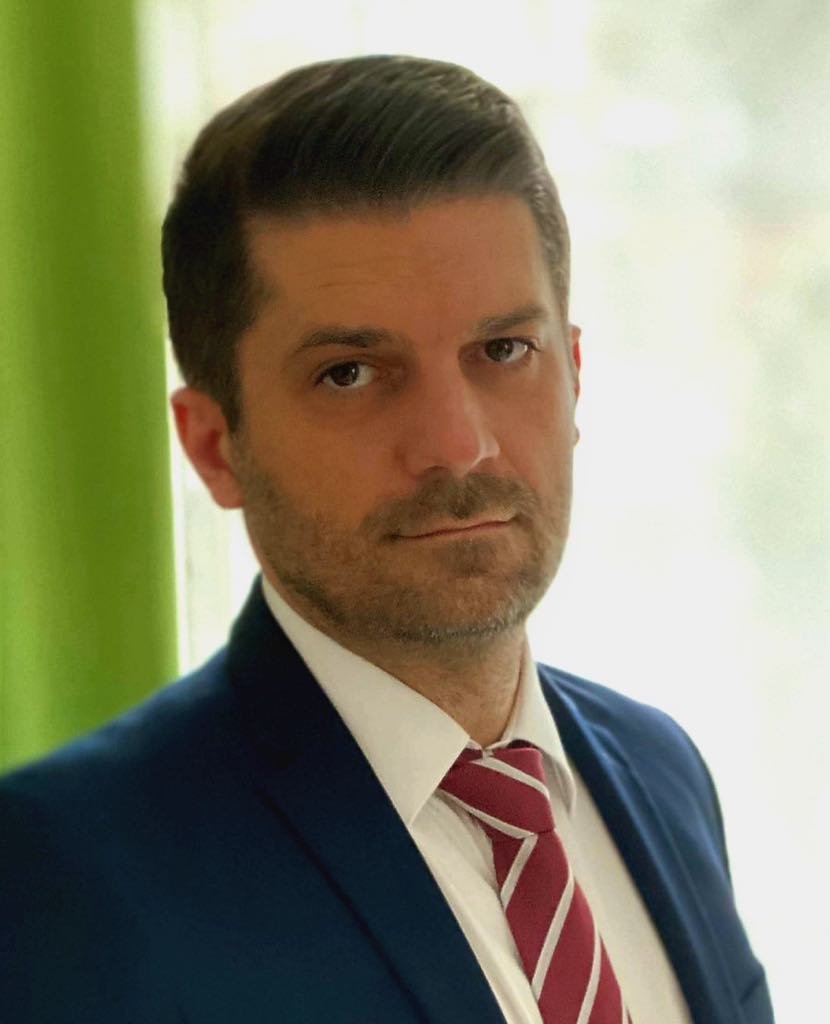
Deputy Ombudsman Zsolt Molnár: Real legal solutions can be found for violations of rights
Fotó: Molnár Zsolt magánarchívuma
The Ombudsman's Office, also known as the People's Advocate, receives many many complaints from members of the Hungarian community in Romania and from the regions inhabited by Hungarians – but the vast majority of these do not concern minority rights; Hungarians struggle with largely the same bureaucratic obstacles as anyone else in Romania, explained Zsolt Molnár in an interview with Krónika. The Deputy Ombudsman discussed the cases most typical of Transylvania and success stories that, in today's climate of continuous commentary, could further increase trust in official procedures and the institution of the People's Advocate.
2025. február 26., 19:402025. február 26., 19:40
– Although online spaces and social media are constantly buzzing with complaints from citizens, trust in state institutions is noticeably decreasing – this could,in the flood of comments, lead to a lack of official action and overlooked violations. In this rather ambiguous environment, are the more than 12 thousand petitions submitted to the Romanian Ombudsman’s Office considered a lot or a little? What do you think, do people still trust the People’s Advocate?
– Social media has now become the primary arena for everyday complaints and dissatisfaction. If someone is annoyed by bad service, a traffic jam, or high prices, they prefer to post it on social media, because they get immediate feedback there. Others online then agree, argue, or share their own experiences, thus allowing people to feel that they are at least being listened to.
In contrast, the handling of an official complaint is much slower, more complicated, and often does not bring quick results, so fewer and fewer people feel that it is worth the time. This not only weakens trust in state institutions, but also in companies and service providers. While the online sphere offers a quick response, the underlying problems often remain unresolved.
Despite all this, the number of petitions submitted to the People's Ombudsman has been stable for years. This does not necessarily mean that many people trust the system, but rather that those who try to find a solution through official channels do so in a more targeted and conscious manner. They most often turn to us when their individual case is stuck or they have encountered a systemic problem. Social media provides an opportunity to express opinions, but does not solve anything in itself.


Sok panasz érkezik a Nép Ügyvédjének is nevezett ombudsmani hivatalhoz a romániai magyar közösség tagjaitól és a magyarlakta térségekből, de ezek túlnyomó többsége nem a kisebbségi jogokat érinti – állapítja meg Molnár Zsolt ombudsmanhelyettes.
– While the institution launched more than 3,600 ex officio investigations last year, the Ombudsman is facing a lot of criticism for not taking action or turning to the Constitutional Court in various high-profile cases – for example, in connection with the government’s austerity measures. How do they decide what becomes a case, a procedure, an investigation, and what does not?
It is generally believed that the main task of the People’s Advocate is to turn to the Constitutional Court in the event of questionable laws. Although this is part of our work, it actually only constitutes a small part of our activities. In reality, the vast majority of our work is focused on completely different areas.
Most of the cases we deal with are about everyday violations of rights – problems that affect an individual person or a community. If someone experiences a violation of the law, whether it is a matter of stalled administration or a systemic problem, we can launch an investigation to initiate dialogue with the authorities and find a solution. We, the deputies, recommend these procedures.
For example, if we are alerted to the fact that a school is not being renovated in a given municipality or a state institution is systematically ignoring citizen requests, we investigate the case and call on the competent authorities to find a solution. In such cases, we are in direct contact with the affected parties, and it often helps if the given institution merely feels that there is someone holding it accountable for complying with the law.
In contrast, the constitutionality review applies only to legislation and can only be requested under certain conditions; moreover, only the People's Advocate can make a decision on this matter.

– The Office of the Ombudsman, i.e. the institution designated to protect fundamental rights, represents the rights of citizens against state bodies and authorities as an independent actor; it fills a kind of conflict management role before potential litigation, but sanctions are not within its competence. What are the most high-profile cases which were successfully solved last year? Are there any success stories that could further increase trust in the People's Advocate institution?
– We have been able to help in a great many cases. Every day we solve problems that have been grievances for many years.

Our department for children's advocation works to ensure that children's rights are not violated; in most instances they ensure disadvantaged children the benefits and support they are entitled to by law. Such everyday cases make up 95 percent of our work, even if they do not always make the news.
During COVID, many families were left in desperate situations because hospitals did not release any information about the patient's condition to their relatives. Despite their attempts to reach doctors or nurses, they often got no response at all which caused immense uncertainty and suffering. We managed to get the rules changed: it was finally made clear to whom patients' health data must be released. The government acknowledged in a decree that the change was made following a proposal by the People's Advocate, and thus now relatives are entitled to receive information about their loved ones.
Another important case last year concerned so-called “off-label” treatments. This refers to prescribed medications that were not originally approved for the given disease or illness a patient suffers from.

That is why we turned to the Prime Minister to enable the financing of these treatments. We believe that the focus of healthcare should be on the person, the patient – not on rigid regulations that determine the availability of medicines solely based on disease classifications. The process of amending the legislation has already begun, and we trust that it will soon provide real help to those who need these treatments.


The Ombudsman's office represents and protects the rights of citizens against state bodies and authorities as an independent institution (the image is an illustration)
Fotó: Pexels.com
– In the report on the Office of the Ombudsman last year, it was revealed that the majority of petitions submitted in 2024 consisted of complaints regarding the standard of living, the education and healthcare system, and the recognition of property rights. But what about cases affecting minorities, especially Hungarians in Romania: were there any such petitions, were procedures initiated, were solutions reached? Have you come across any petitions submitted in Hungarian?
– We receive many complaints from Hungarian communities and regions populated by Hungarians, but most of them are not about the violation of minority rights, but rather the shortcomings of public administration. We rarely encounter submissions that explicitly refer to ethnic discrimination.

However, from time to time, cases arise that highlight the still-existing problems in enforcing minority rights. We have received complaints about state institutions not allowing communication in Hungarian-language in settlements where this would have been mandatory. In such cases, we formulated recommendations and, for example, managed to achieve that a certain town’s website was translated into Hungarian.
There was also a case where a Hungarian-speaking complainant was denied the right to practice his or her religion in his or her native language in prison. Naturally we contacted the penitentiary institution in this case. These are all issues that we deal with immediately.

There are Hungarian-speaking colleagues working in our offices, so we not only process submissions, but also send replies in Hungarian as well. In addition, personal hearings in Hungarian are available at our regional offices in Târgu Mureș, Brașov and Oradea.
– The People’s Advocate operates several regional branches. Compared to the average, how do the offices in Transylvania, including those covering the Hungarian-populated regions, “perform” in terms of the volume of complaints received and the number of investigations launched? Is there a type of complaint that is typically Transylvanian?
– In Transylvania, the majority of complaints are similar to problems experienced in other parts of the country, but there are regionally-specific issues. The enforcement of language rights remains a sensitive topic, especially in public administration and healthcare, where there are sometimes difficulties with Hungarian-language administration.

In terms of property rights, the Transylvanian land plotting system has historically created a more favorable situation, but unfortunately the compensation process still tends to drag on. In some places, the use of bilingual signs is also a subject of debate, and in recent years we have had to take action in the case of some anti-Hungarian graffiti, but overall there has been progress in this area as well. Problems with transportation and infrastructure development are also common, especially in large cities. The issue presented by the local bear population is also a typically Transylvanian issue, which we have been continuously dealing with since 2018.


Zsolt Molnár with Ombudsman Renate Weber
Fotó: Radu Tuta/Agerpres
– You work as Renate Weber’s only Hungarian deputy ombudsman, but you assumed this position back in 2018, during the mandate of the predecessor of the current People's Advocate, Victor Ciorbea. In the almost seven years that have passed since then, what have been your most hair-raising cases? Is there a complaint that you are personally proud of having resolved?
– Here I would like to highlight the coordinated cooperation that was achieved in connection with the PISA tests. A suggestion was made by Tamás Kiss and Tibor Toró, colleagues from the Institute for Minority Studies in Cluj-Napoca, that a Hungarian subsample should be taken for the PISA tests, providing a more nuanced picture of the characteristics of Hungarian-language education.
I brought the initiative to the Ministry of Education, and together with Zoltán Kallós, the State Secretary responsible for minority education,

This analysis was subsequently completed and generated a number of illuminating conclusions.
I also consider it an outstanding achievement that we were able to eliminate the unfair practice by which certain county pension funds incorrectly calculated the pensions of Hungarian journalists. In an official procedure, I managed to get the National Pension Fund to instruct county branches to obey the law. And since then, no more complaints have been received in this regard.
Unfortunately, there are currently more and more cases where action must be taken against hate speech and the use of Romanian legionary symbols – two procedures are currently underway on this issue. In recent years, it has become increasingly clear that the line between freedom of expression and hate speech is becoming increasingly blurred. And this is worrying.
While everyone has the right to freedom of expression, this does not mean unlimited freedom. Freedom of expression has its limits, and anyone who crosses them – for example with hate speech, defamation or incitement – must live with the legal consequences.

And the state has a duty to protect its citizens from hate speech and to hold accountable those who publicly incite hatred. That is why in recent years I have paid special attention to the issue of hate speech and to ensure that the authorities respond appropriately when incitement to hatred occurs under the “protection” of freedom of expression.
I have actively participated in the development and implementation of Romania’s strategy against anti-Semitism, xenophobia, extremism and hate speech. I have been working in this area since 2020, and we have managed to create a national strategy that now covers a wider spectrum, with more authorities involved, and more working groups in areas such as the application of criminal law measures or the management of conflicts arising at sporting events. This is a complex, constantly expanding pursuit, which is supervised by the Romanian government and actively represented by the office of the People's Advocate.
– Renate Weber's five-year mandate expired last June, and opposition politicians consider it illegal that in the nearly eight months that have passed since then, parliament has not extended her mandate or appointed someone else to replace her. To what extent does this uncertainty affect your position and work?
– The deputies are appointed by parliament upon the proposal of the People's Advocate, but our mandate is not directly related to the mandate of the head of the office, so this does not affect our work. In order to ensure the stable functioning of the institution, the law also ensures that whatever happens to the head of the office, one of the six deputies must be able to take over the management of the office until the new People's Advocate is appointed. Since the legal framework allows the current People's Advocate to remain in office until the new one takes office, the current situation does not affect the functioning of the office – our work continues.
Zsolt Molnár, 41, served as the RMDSZ Timiș County Parliament Member from 2012 to 2016, worked as an advisor to the Prime Minister from 2017, and has been a Deputy Ombudsman since April 2018. His current position covers the areas of general human rights, gender equality, minority rights, and religious rights. In addition to these, Zsolt Molnár also deals with the following fundamental rights in the Ombudsman's office:
As of August 1, shoppers will have to dig deeper into their pockets – partly due to a 2–12% increase in the value-added tax (VAT), and partly due to the rise in excise duties.
“I would like to speak with Romania’s new president as soon and as extensively as possible, because we have shared issues within the European Union, and the interests of Romanians and Hungarians often align," Prime Minister Viktor Orbán told Krónika.
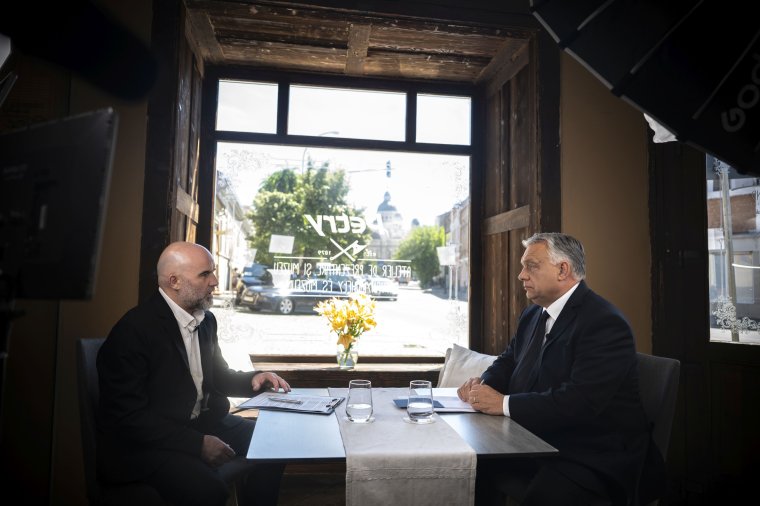
Although Romania is in urgent need of major adjustments given its struggling financial situation, the four-party coalition was only just formed following the presidential election in May.
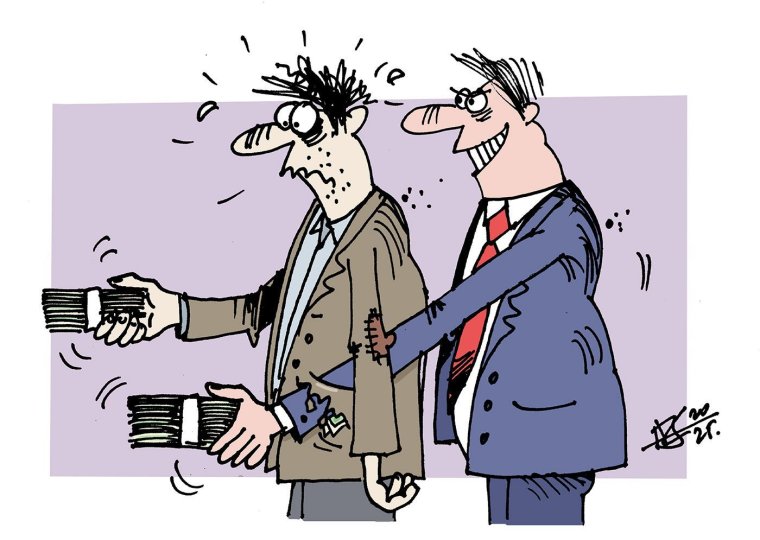
Desperate, silent people, hopelessness, and the authorities’ secrecy characterize the situation in Parajd (Praid) following the salt mine tragedy.

Romania has lost the most residents over the past 20 years among the EU member states according to the „Demography of Europe – 2025 edition” research by the Eurostat statistical office.

I would like to share a personal story from 1986 that I have never told before. I had just finished my first year studying physics at university.
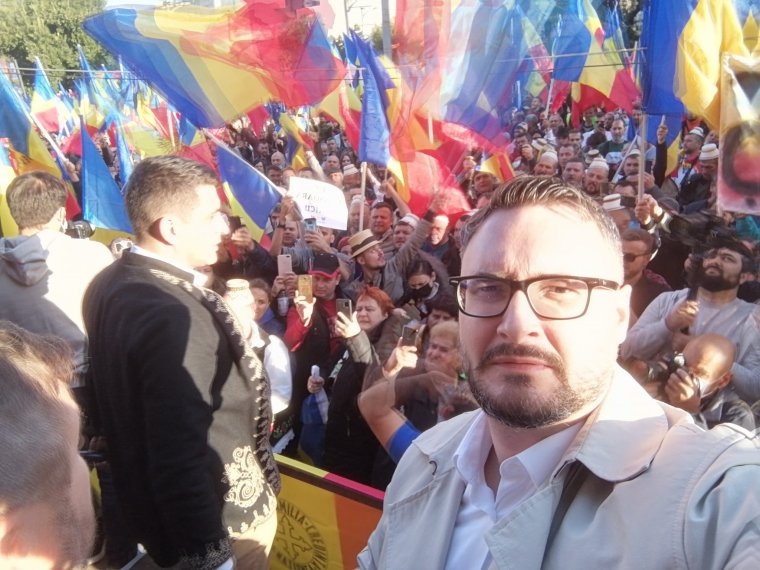
While Sunday’s first-round results of Romania’s presidential election were not entirely unexpected, the outcome delivered a political shock of historic proportions.
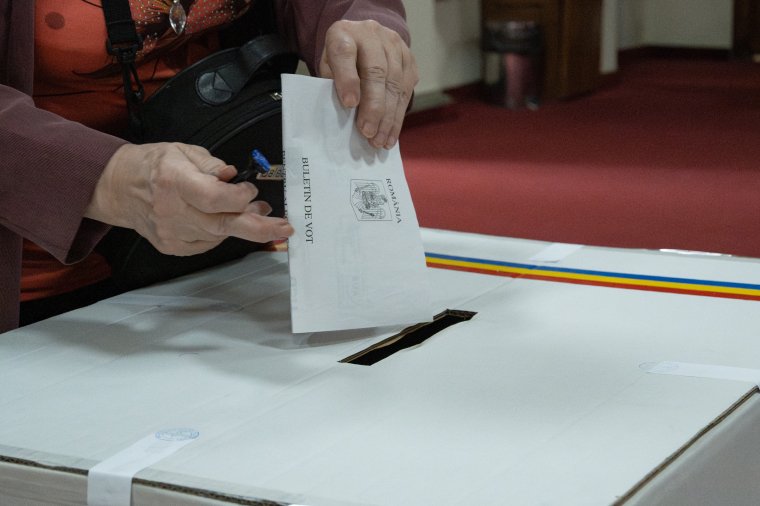
Pope Francis, who passed away on Easter Monday at the age of 88, left behind an exceptional legacy. Papal Prelate József Marton spoke to Krónika about the Pope’s role in the history of the Catholic Church and his visit to Csíksomlyó.
It took Emil Boc a long time to recover from the punch in the face that shattered the smiling cityscape posing as the poster child of multiculturalism.

Monday night's match between the Cluj-Napoca Universitatea (“U”) and CFR football teams ended in a street fight.
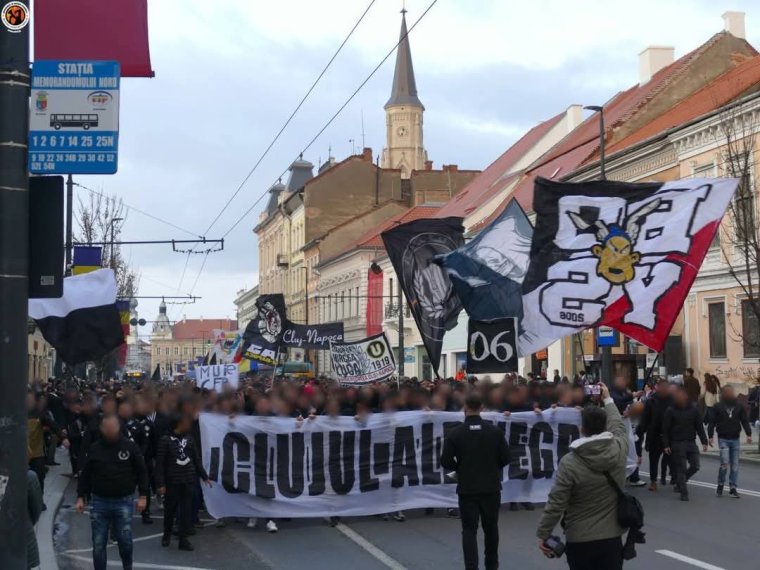
szóljon hozzá!